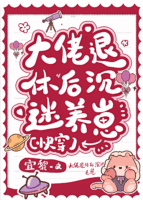I Have A Store C39
by MarineTLChapter 39: Registering a Household
Zhou Xuqing patted his stomach—he was full.
These past few days, he had taken full advantage of his nephew’s generosity, enjoying wine, meat, and even cigarettes. It was like living in paradise! The guys working alongside him were all envious.
After eating and tidying up the table, the village head and others arrived at their doorstep.
Zhou Yimin suspected they had timed their visit precisely.
Without exception, they were all here for the award certificate, eager to see it with their own eyes.
And so, Grandpa Zhou began his performance.
This was a perfect opportunity to show off! Better yet, he wanted these visitors to help spread the news—word of his grandson’s achievement should reach every surrounding village and commune.
“Yimin, you’re outstanding! The pride of Zhoujiazhuang,” the brigade leader praised.
The village head nodded with a smile, feeling a surge of pride. This was a great honor for Zhoujiazhuang.
“Yimin invented the hand-pump well, which has been incredibly useful. Winning an award for it is well deserved.”
No one knew better than their village how effective and convenient the hand-pump well was.
After installing four new wells last night, they not only made water access much easier for the villagers but also improved irrigation for the crops.
Previously, they had relied solely on a single spring, which was far from sufficient. Most of the villagers had to spend their days hauling water for irrigation—an inefficient and exhausting task. Even then, the spring couldn’t supply enough water.
But today, things were different.
With the four new wells, they managed to irrigate all their crops in just one morning.
Seeing their crops no longer look weak and withered, everyone finally felt relieved.
After all, this directly affected their food supply for the rest of the year! A poor harvest would mean less food, and once again, they would face the threat of hunger.
Zhou Yimin prepared a pot of high-grade tea dust, which he had specially bought from the city for such occasions.
For his grandfather, he had an entire tin of tea.
The tea had been purchased from the store in his mind space for five yuan.
“Brigade leader, village head, have some tea!”
Their family didn’t have special teacups. The enamel mugs awarded by the factory had been given to Grandpa. In the countryside, people usually drank from bowls.
“Oh! This tea looks quite nice.”
In rural areas, even high-grade tea dust were a luxury, something most households didn’t have.
“Village head, I have a favor to ask,” Zhou Yimin said, seizing the opportunity.
The village head took a sip of tea and nodded. “Go ahead, Yimin.”
If it was something within the village’s capabilities, he would make it happen.
Since Zhou Yimin considered himself part of Zhoujiazhuang, the village, in turn, had to treat him as one of their own and support him when needed.
“It’s about Qianqian—I’d like to register her household here.”
The village head grinned, thinking it was something much more complicated. This was a small matter, not even worth mentioning.
“You want her registered in our village? Think carefully about this,” the village head reminded him.
Right now, city household registrations were far more valuable than rural ones.
City households were entitled to government-rationed food, something everyone in the countryside envied.
Since the 1950s, the state had introduced a system to ensure food and oil supplies for non-agricultural populations. Every household received a grain and oil ration certificate issued by the local government’s food administration.
These certificates were often more valuable than money itself, something rural people longed for. Some village girls even married elderly or disabled city men just to obtain a ration certificate and enjoy city life.
For rural people, obtaining a red, blue, or brown kraft-paper grain ration book was only possible through:
1. Replacing a retiring worker in a government job
2. Getting assigned a city job after passing the national exams
3. Joining the army and earning an officer’s rank
4. Becoming disabled and receiving special government placement
5. Being promoted from a barefoot doctor or local cadre to an official state worker
It would be easy to register Qianqian’s household in Zhoujiazhuang, but transferring it to the city later would be a hassle.
“I’ve thought it through—she’ll be on the same household registration as my grandparents,” Zhou Yimin said.
China had introduced household registration booklets in 1958.
Currently, rural people envied city registration mainly because of food and supply issues.
But to Zhou Yimin, access to food and goods wasn’t a concern. So, whether Qianqian’s household was registered in the city or the countryside didn’t really matter.
As for future education concerns, he had plenty of ways to handle them.
“Alright, I’ll get it done this afternoon,” the village head agreed.
After a moment of thought, Zhou Yimin continued, “Village head, does our village have the means to reopen the school?”
“A school?”
The village head and others were taken aback.
Since the school had shut down, they hadn’t given it much thought. Back then, survival was the top priority, and children’s education had to take a back seat.
“Village head, from what I see, Zhoujiazhuang can now at least manage to feed itself. It’s time to restart the school,” the brigade leader suggested.
His child was already seven—schooling was now a pressing concern.
Now that Zhou Yimin had raised the issue, he immediately supported it.
“This matter requires discussing with Zhigao first. His family’s situation is difficult—they all depend on him to survive. How about we go talk to him together?” the village head suggested.
Finishing their tea, the group got up and headed to Zhou Zhigao’s house.
Zhou Yimin quickly followed.
He cared about “developing” Zhoujiazhuang, as it would give him a foothold in the village for the future.
Upon arriving at Zhou Zhigao’s home, they found it barely furnished—almost barren.
Along the way, the village head had explained Zhou Zhigao’s family situation: two elderly parents, five children, and extreme poverty.
As a substitute teacher, Zhou Zhigao had no salary—only work points.
Situations like his were common across rural China.
Zhou Yimin couldn’t help but feel a deep respect for rural teachers.
He knew that in many villages, teachers didn’t just teach kids. They also ran night schools to eradicate illiteracy, educated farmers on agriculture and forestry, and handled various propaganda duties.
Yet, they weren’t paid—only given work points.
“Brigade leader, village head, come in and sit. Oh! Yimin, you’re here too?” Zhou Zhigao quickly welcomed them in.
However, there weren’t enough stools, so he had to send his children back into their rooms.
“Xiaolan, bring out the stool from your room, too.”
As Zhou Yimin greeted everyone, he glanced around. Though the house was simple, it was clean and tidy.
The two elderly parents looked frail, their cheekbones protruding from hunger.
Zhou Zhigao’s wife hurriedly wiped the chairs with a tattered cloth before letting them sit.
His five children included three girls. The eldest, around fifteen or sixteen, was nearly of marriageable age. The youngest, a boy, looked about three or four.
When Zhou Yimin entered, the little boy kept stealing glances at him.
Noticing the gaze, Zhou Yimin looked at him, prompting the child to hesitantly call out, “Uncle Sixteen!”
After speaking, he shyly clung to his mother’s leg, half-hiding behind it.
The little one was quite timid.
“Come here,” Zhou Yimin beckoned.
—End of Chapter










0 Comments